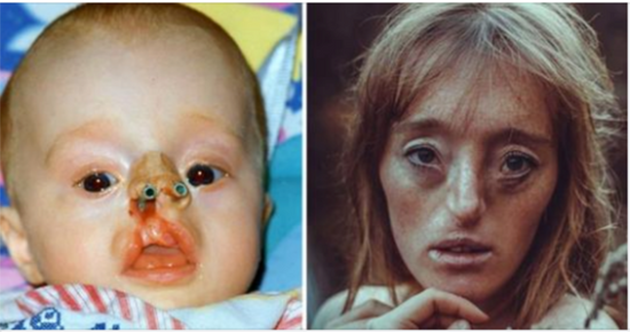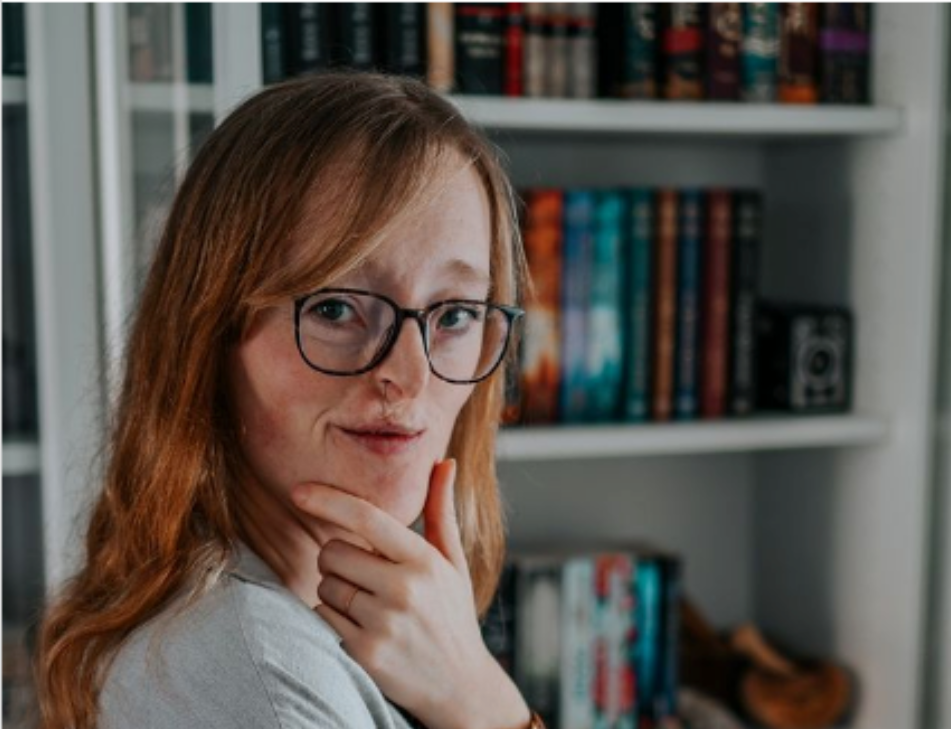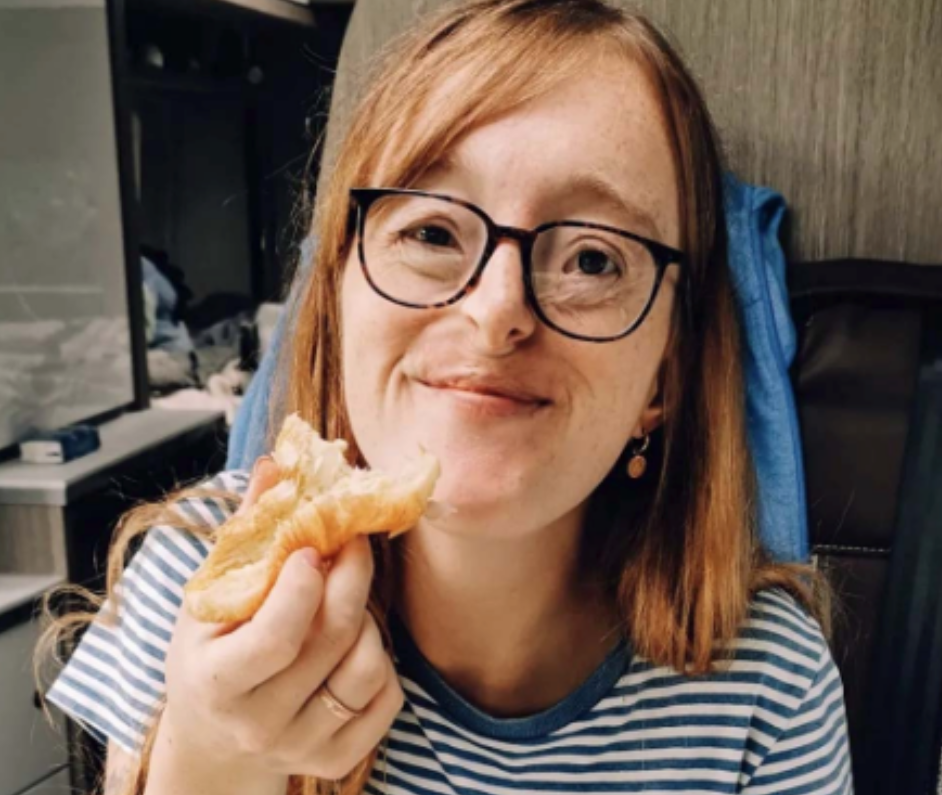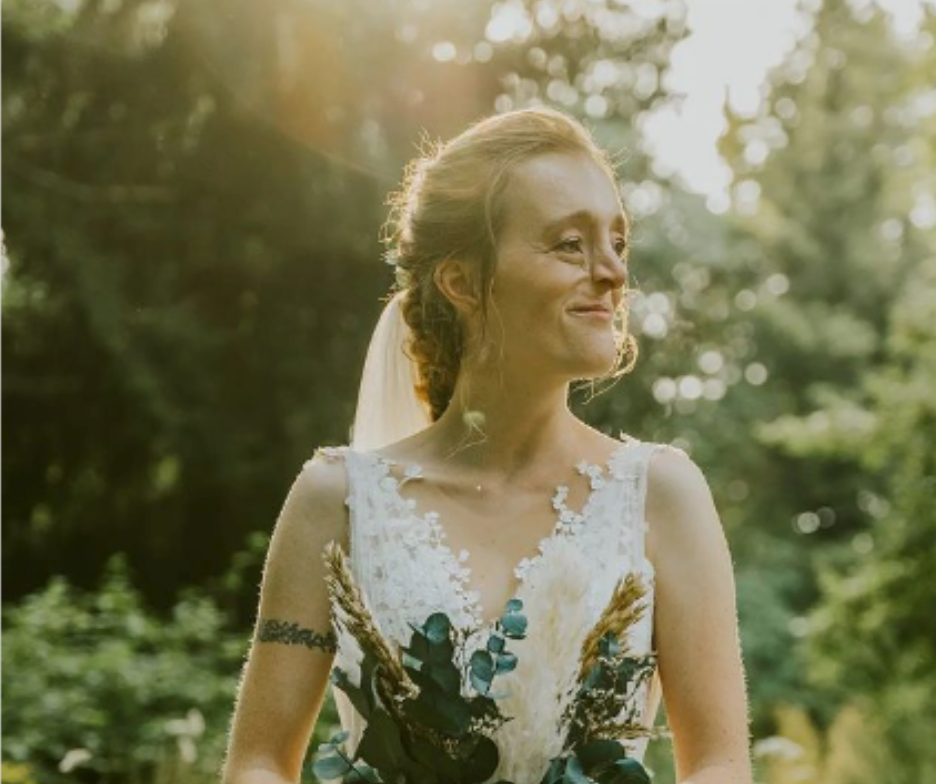Nobody should ever receive a different level of treatment simply because of how they appear.
Unfortunately, both children and adults engage in this behavior frequently, and it is never appropriate. Ask Ilka Brühl, who was born with the uncommon genetic condition ectodermal dysplasia, which had an impact on her facial form.

The German student, who was subjected to cruel slurs at school, eventually wished she could somehow turn invisible. At the same time, she excelled in school and ultimately understood that sharing her own experience could benefit others.
Ilka is now a published author and model. She wants to inspire people to see their inner beauty and embrace one another for who they are through social media and a podcast she hosts.
This is her incredible story, and what she looks like today, aged 30.
Now, I want you, the reader, to pause and consider your life at the age of 16. I have a lot of recollections from that time, both happy and unhappy. However, generally speaking, it was a period of great change. More hormones, an excess of emotions, and occasionally even mental difficulties were things I had to deal with.
Ectodermal dysplasia caused Ilka Brühl’s birth.
I hope overall that it was a happy time for you, as it was for me.
Imagine being referred to as “Pig Nose,” “Freak,” or “Alien” when you were 16 years old. Imagine that you were the only one who wanted to play at school and that when other kids noticed you, they made fun of you and pointed.

Ilka now serves as an inspiration to millions of people throughout the world. She aspires to assist people through her work.
The parents of Ilka Brühl believed their daughter to be in perfect health up to the day she was born in January 1992. She was. The young girl’s respiratory problems were discovered by medical professionals. For some reason, the airways in her nose had gotten congested.
This required immediate surgery, and her cleft palate was treated by doctors. By that time, it was obvious that little Ilka was “different” in some way.
Many kids all across the world find a school to be a very difficult environment. Ilka, regrettably, came to comprehend that more than most. Even though she was the same as everyone else at her school, the students didn’t grasp that.
As per reports, kids at school asked questions about her looks and laughed at her.
“At first I thought: How else am I supposed to look like? That’s how I am! But then I consciously looked in the mirror and realized that my nose is different. Then you start questioning yourself,” she told the German newspaper Kurier.
Even though she was a beautiful little girl, bullies at school were relentless. They called her names like “Freak,” “Alien,” or “Pig Nose” and never wanted to play with her.
“As a child, I often had eye infections because my tear duct was not developed, and headaches because my paranasal sinuses were very susceptible to moisture,” Ilka said.

“But I was always able to live with the symptoms.”
She added: “My parents always gave me the feeling that I was right the way I was. As a child, I could confidently counter stupid sayings or looks. Nevertheless, the question came up during puberty: ‘If I’m supposed to be so normal – why don’t you see people like me anywhere?’”
Ilka even intentionally made faces in photos, so her parents wouldn’t hang up pictures of her at home.
“That was my avoidance strategy,” she said. “If I look at photos so stupidly that my mom doesn’t hang them up, then I don’t have to see it either.”

Ilka experienced an increase in her level of self-doubt as she grew older. not just from what she overheard in class, but also from television advertising. Ilka said that businesses frequently released advertisements that promoted social standards of what was attractive, and she felt she was never represented. The girl claimed that as a result, displaying her face was much more embarrassing than showing herself naked.
She was subjected to a lot of bullying at school, but she resisted letting it affect her. Ilka excelled academically and earned the highest grades in her class.
“It was like a kind of double life,” she recalled.
Everything changed before the photoshoot
As for her low self-esteem and self-confidence, Ilka had a hard time making friends.
She had ten operations, and even though she struggled with accepting herself, things started to improve over time. She quickly transformed into a self-assured woman who wished to serve as an example for others after realizing that she wasn’t less valuable than everyone else.
In 2014, when she was en route to her first picture shoot, everything changed.
“On the way to [the photographer], I was on the verge of turning around several times because I was so terrified that she would laugh at me when she saw me in real life,” she wrote.
“Being in front of the camera has shown me: Every defect and every mistake is a part of you, and that’s okay too. You just have to make the most of it,” she added.
Ilka had a nose job when she was 20 years old. Ilka initially believed the procedure would finally give her the guts to embrace herself, however, it was largely for medical reasons.
After the surgery, though, things went a different way.

“If you accept yourself, then you can shine from within”
“As soon as the wounds had healed, I noticed the next blemish. At that moment I realized: Beauty cannot be created on the operating table,” Ilka mentioned.
“For me, [beauty] is all about appearance. If you accept yourself, then you can shine from within and that’s nicer than the most perfect person who doesn’t like themselves.”
Ilka understood there were other things she could do instead of modifying her appearance through additional procedures. It was more important for her to learn to accept herself than for others to view her as a “normal” person.
“I approached people more openly and learned to like myself. And noticed: The others don’t withdraw from me at all, I withdraw from them!”
Ilka was aware of her “odd” appearance, but this was not a bad thing. She preferred to value her peculiarities. The woman, who was born in Germany, wanted to share her hardships and life experiences because she recognized she might help people accept themselves for who they are.
So Brühl published a podcast about how she deals with self-doubt. She also offers advice on how to love oneself more. Even her book, Differently Beautiful – How I Learned to Love Myself, has been released.
Project Grenzenlos, which translates to Project Limitless, was founded by her and a few pals in 2018. The goal of the campaign is to draw attention to the beauty of those who deal with physical disabilities and other deformities. It fits Ilka Brühl’s definition of beauty, in her opinion.
Nobody is flawless. However, we should always treat one another with respect, regardless of how “different” some individuals may look or whether they have a disability.
Ilka Brühl is a role model for others, please share this story with your Facebook friends and family.


